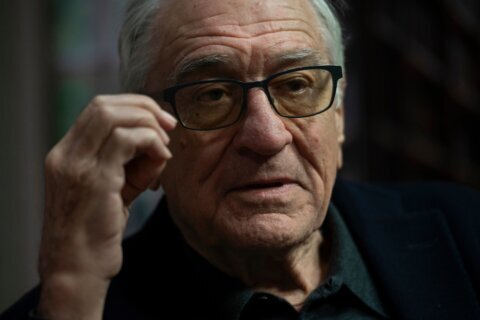Hear our full chat on my podcast “Beyond the Fame with Jason Fraley.”
She directed “The Life and Times of Hank Greenberg” (1998) about the first major Jewish star in Major League Baseball, followed by “The Spy Behind Home Plate” (2019) about enigmatic Jewish catcher Moe Berg who secretly became a U.S. spy investigating the Nazis’ atomic bomb program.
Now, filmmaker Aviva Kempner turns the lens inward on her own family in “A Pocketful of Miracles: A Tale of Two Siblings” (2023), which screens for three more days at 2 p.m. Tuesday, Wednesday and Thursday this week at The Avalon Theatre in D.C., as well as an additional screening and Q&A at the Bender JCC in Rockville, Maryland on Thursday.
“For over 40 years, I’ve been making films about under-known Jewish heroes,” Kempner told WTOP. “My mother and uncle never talked about the war, my mother was in a slave camp, my uncle survived Auschwitz, their sister and parents died, so I said let me go back. … I realized that I could tell the story of before the war, during the war and, what’s so inspiring, after the war.”
For archival insight before the war, Kempner explored sit-down interviews that her maternal grandmother, Hanka (Helen) Ciesla, and brother Dudek (David) gave for Steven Spielberg’s USC Shoah Foundation in 1997.
“They grew up in a middle-class, educated, Jewish home in Sosnowiec, Poland,” Kempner said.
“My grandmother was very educated and knew a lot of languages and it seemed like an idyllic life. My mother, who never talked about the Holocaust to me, mentions in the film that she didn’t know about past antisemitism, particularly pogroms. … Then, Poland was one of the first countries hit by the Germans and the family was separated.”
When Nazi Germany invaded Poland in 1939, Kempner’s mother and uncle lost their sister, Cesia, and their parents, Leon and Helena (Aviva’s grandparents), to Adolf Hitler’s genocide against Jewish people in the Holocaust.
“My grandfather, my uncle and his sister and my grandmother were deported to Auschwitz,” Kempner said.
“My mother had once said to me that her grandmother died in front of her. I now know it was the Germans coming and shooting her when they were put in the ghetto. My grandmother and aunt died upon arriving at Auschwitz, and in the liberation of Auschwitz, my grandfather died, but my uncle survived. It was Americans who saved my mother.”
Kempner’s mother made her way to Berlin where she met U.S. Army officer and postwar military journalist Harold Kempner. They fell in love and birthed Aviva in 1946, making her the first American-Jewish baby born in Berlin.
Years later, while attending law school, Kempner traveled to Israel the day that her father died in 1976. She brought several of his belongings home with her to D.C. where they moved from house to house over the years, among them a can of black-and-white 8 mm film that she never watched until making this film.
“It was in the family for 70 years,” Kempner said.
“It was just sitting there hidden in a box. Only when I had this associate producer, Emily [Streim], working with my editor, Lucia [Fox-Shapiro], I said, ‘Go look for it.’ It took her four days and all of a sudden we hear this yell from the basement: ‘I found the footage!’ There’s the cutest pictures of me petting the dog … in a house that I thought had been Berlin, but it turns out it was Munich.”
Thus, the film begins its most uplifting portion about what happened to her relatives after the war, forging productive lives and careers in art and business. In fact, her mother’s paintings are currently on display at the Kosciuszko Foundation at 2025 O Street Northwest, D.C. every Monday from 10 a.m. to 3:30 p.m.
“My mother doesn’t do typical Holocaust art, but she says each stroke is for the 6 million [murdered],” Kempner said.
“It’s a film about a horrific time in our history, but it’s also an inspiring film about how my mother and uncle survived the war but made lives for themselves in America, and wanted, for my mother, to create beauty, and for my uncle, of course to make money, but also to bring their religious institutions with them and just to help people.”
Kempner said she also hopes the film will guard against history repeating itself.
“The film rings so true today because when I decided to make the film already there was Holocaust denial and antisemitism, but now it’s 100 fold,” Kempner said.
“People ask me after coming out of the film do I think fascism could rise in America; there’s groups that show elements of it and there are even political leaders talking like it. … We cannot let the targeting of any religion or any people be allowed in society. … The expression is #NeverAgain.”
Listen to the full conversation on the podcast below:







